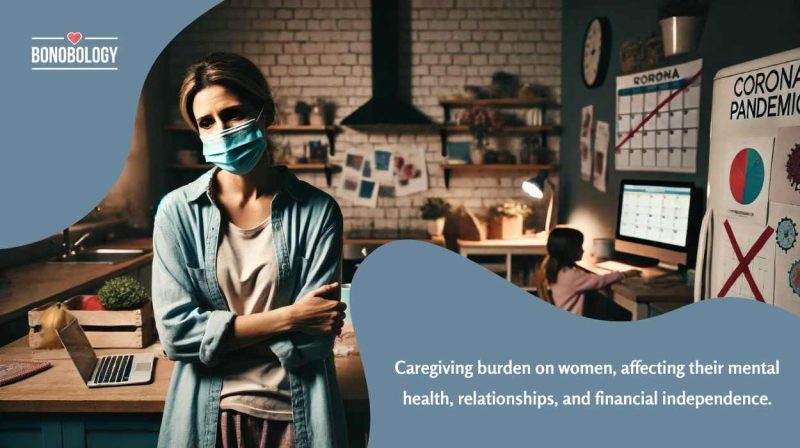We have often heard about marital counseling or couples counseling. We are aware that it requires expertise and is a process for when your marriage seems to be on the rocks. To revive your marriage, clear up some communication issues and jumpstart a healthy married life, marital counseling is a popular option. But what exactly are the specific goals for marriage counseling? What do you achieve by seeing a counselor? And how exactly does that solve your relationship issues?
In recent years, the scope of marital therapy has steadily been expanding. The institution of marriage must be dealt with seriously. Not only does marriage change your interactions and surroundings but it also changes you as a person to a great extent. This whole process of accommodating someone else’s emotions while preserving your own comes with its own hurdles. And when things start getting rough, it might feel like everything is coming crashing down on you.
If you have been feeling ‘stuck’ in your marriage or have been considering starting couples therapy but are not sure of it, then you’ve come to the right place today. Therapy can seem a bit scary at first. And if you and your partner are not ready for it yet, that’s absolutely fine. We can still tell you all about the scope of marital therapy and you can decide later on if this is for you or not.
With the insights of senior psychologist Dr. Prashant Bhimani (Ph.D., BAMS), who specializes in relationship counseling and hypnotherapy, we have compiled a few necessary goals for marriage counseling. Below we have talked about the purpose of marriage counseling and how to achieve it. So put all your worries away, as we can clear your doubts once and for all.
How Do You Set Goals For Couples Therapy?
Table of Contents
Counseling is a long, emotional process and should not be taken casually. The specific goals for marriage counseling should be carefully laid out in order to begin your journey to a better understanding of your partner and achieve a healthy marriage. These goals are practiced and preached by venerable psychologists to help couples navigate through their troubles.
Couples counselors reveal that different couples deal with different issues, which is why they have their own unique short-term goals for therapy. Most marital counselors tailor specific goals to deal with specific relationship problems. But some wide-ranging goals apply to all. There are certain common things that couples aim to achieve through therapy – better communication, attaining problem-solving skills or learning how to handle arguments healthily.
John and Julie Gottman developed the Gottman Method of marital counseling by doing scientific research on 3,000 couples over 40 years. Their approach highlights the importance of assessment and skill development in managing conflict, overcoming barriers, increasing understanding, repairing past hurts, and improving connections in relationships.
So to set up goals for couples therapy, you begin by looking at the specific issues at hand and work at addressing those. In this article, we have delved into the broad scope of marital therapy, in the sense of a generic set of goals that would apply to most couples.
What Are The Goals For Marriage Counseling?
What do you talk about in marriage counseling? Are there any short-term goals for couples therapy? What exactly is the point of couples therapy? Your mind is probably abuzz with these questions right now as you are trying to decide whether you should opt for marriage counseling or not.
One thing that we can tell you for sure is that the guidance of an experienced therapist will indeed do wonders for your marriage. With marriage counseling guidelines tailored to your unique needs, a skilled therapist can indeed put you and your partner on the right track.
Your woes are valid but we are here to put them at ease. With these 15 examples of marriage counseling goals, you’ll have a much better idea of what this process is like. So without further ado, let’s get right into it.
1. How to practice problem-solving skills

The whole point of starting couples therapy is to learn problem-solving skills in order to better deal with your relationship. Relationship problems arise in marriages when we are not able to understand another person’s point of view, accept that those differences are only natural and find a reasonable solution to work around it.
Thus, according to Dr. Bhimani, couples need to primarily focus more on adaptability and acceptance with open arms. He says, “We expect people to be a certain way but everyone is actually very different. Love and compatibility in marriages require acceptance and correction. That is why couples must strive to achieve that and we help them do that in counseling sessions.”
2. How to deal with the differences
It can be assumed that every marital problem can be worked out by skilled and effective communication. That is indeed the best way to deal with the differences in your relationship. “Agree to disagree”, is an aphorism that Dr. Bhimani often stresses upon during his counseling sessions.
He says, “Even activities like going for walks or taking a long drive together can go a long way in putting your grudges aside. Spending quality time together, talking to each other well is all part of good communication. Even listening to and paying attention to each other’s musical tastes is an effective solution to the growing disconnection. Spending time with and talking more to your children can also often dissipate anger because it puts the bigger picture into perspective.”
3. Lessons in anger management is the point of couples therapy
The whole point of couples therapy is understanding how to manage your anger better which will, in turn, make you more adept at dealing with the problems in your relationship. Anger is a potentially dangerous device that can arise from a variety of issues. But the sooner you get a hold of it, the sooner your life will approve.
Dr. Bhimani says, “When your partner is visibly angry and aggravated, you should try to tone down your own level of anger to avoid incensing an already heated atmosphere. When a person is angry, it is the responsibility of the other to remain calm and simply suggest that they just talk about it later. The whole idea is to avoid a pointless heated argument and talk it out when both people are in a calmer state of mind.”
Related Reading: How Do I Stop Abusing My Wife?
4. Understanding issues starting in childhood
One can say that one of the short-term goals for couples therapy is understanding the causes behind the erratic, irascible and problematic behavior by both partners in the marriage. Starting couples therapy can be enlightening as many childhood problems may come to the fore in this case. Childhood upbringing manifests itself in a variety of our interactions as adults.
When an impressionable young child observes frequent parental quarrels, has been subjected to a lot of parenting mistakes, they might internalize those patterns and mimic them in their own married life. The person might grow up to be more belligerent, display voluminous insecurities, and perhaps even develop ticks such as nail-biting.
It is important to understand that it will not be easy to extricate this facet of one’s personality. However, to address it verbally and openly in therapy and effectively channel that energy becomes extremely important. To realize that this could pose a significant problem is among the most important aims of couples therapy.
5. How to talk tactfully and listen well comes under the scope of marital therapy
The most primary goal of marriage counseling is to hone conversational skills. This will not only address the current problems such as boredom or complacency in a relationship but is a skill that will always be useful in your married life. In fact, it can even come handy in your interactions with other people as well. Good listening skills are imperative in any form of communication.
To foster a healthy relationship, one needs to be attentive, curious and eager to listen to one’s partner. A relationship becomes unhealthy when there is a breakdown of communication. Moreover, it’s vital to know how to word your arguments in order to convey your own stance on a particular situation but also accommodate your partner’s feelings.
“We expect partners to understand each other but people should speak up clearly and express themselves in words as well. Fighting or bickering or sulking are not effective ways of dealing with a situation. One has to talk clearly and with an open mind,” says Dr. Bhimani. The power of words is infinite and must be wielded carefully to have more fruitful conversations in your marriage.
6. How to criticize constructively
As already mentioned, words possess infinite power, especially in a relationship. Now criticism will arise from our differences with people, it is not something we can or should simply do away with. Constructive criticism is important to analyze what might be making the relationship go downhill and work toward correcting that holistically.
Therefore, a calm environment, a focused attitude and open ears are all important in order to work out your problems and express what has been bothering you about your partner. “Let them fully understand your point of view and also allow them to express their feelings too. Your criticism is important but their reaction to your criticism should also be taken into account,” says Dr. Bhimani.
You might think that the outfit your partner is wearing is not possibly her best choice. To have that opinion is valid. But how does one put it across? That is what you have to learn and comes under the scope of marital therapy.
7. How to do away with hurtful words
The scope of marital therapy also includes discussing past conflicts and personal grievances. A lot of times, sometimes even for reasons that are completely unrelated, we tend to do or say things that we might not fully mean. We tend to rashly manifest internal conflicts in inappropriate ways and project our own feelings and emotions onto our partners.
While these situations are not completely avoidable owing to everyone’s mutual struggles, it is important to apologize sincerely at a later time and talk it out openly. When we give ourselves time to reflect and process our emotions on a personal level, our conversations and apologies can be much more intelligent and heartfelt later on since the tide of frustration has passed till then.
Related Reading: 12 Hurtful Things You Or Your Partner Should Never Say To Each Other
8. Understanding when the relationship went downhill
This is one of the most important examples of marriage counseling goals. When you enter the counselor’s office, probably the first thing you all do together is decode and understand where things actually started going wrong. A relationship or marriage can have its downer moments multiple times during its course. It is nothing that you should be wildly fretful about but it requires timely recognition in order to ensure that you can tide over the phase passes swiftly.
As humans, not everything we do will be perfect. There are times when your marriages might appear to fail but as long as you can correctly identify what is causing issues and prepare a path to navigate through the same, your marriage can become stronger than ever.
Couples therapy can be a fruitful exercise only when both partners have acknowledged the existence of a problem. Some cues for relationships becoming worn out, according to Dr. Prashant Bhimani, are lack of communication, dryness in interactions, irritability, a decline in sexual relations, not preferring to go out together, frequent clashes.
9. How to do away with the negativity
“Giving each other a good amount of breathing space is often emphasized during marital counseling sessions. Unfortunately, it is something that couples repeatedly fail to acknowledge. Other people are allowed to have emotions that do not necessarily prescribe to our moods. A lack of this understanding can create a highly uncomfortable atmosphere for both partners,” says Dr. Bhimani.
People are wired individually. So when the going gets tough, individual reflection and personal space are key to creating a more positive space in your relationship. Moreover, a lot of negativity is simply created as a result of our own projection of feelings and insecurities.
Dr. Bhimani adds, “Even a regular WhatsApp message when not replied to by your partner, but you can see the blue ticks, can make you feel unhappy. This is the negativity creeping in. Reality is usually very different from our assumptions and notions, and we should give our partners the benefit of the doubt to avoid spewing negative thoughts. That should be one of the goals for marriage counseling.”

10. How to say “Thank you” is one of the short term goals for couples therapy
“Expressing gratitude is a minor aspect of displaying your ardent respect for your partner. This must be practiced by both partners in a relationship more often. The rural areas in India do not see much of this though. People in smaller towns do not feel the need to say “Thank you” as much because the male-dominated families tend to take the females for granted.
“However, relationships are starting to work more differently in urban areas. Women are being more respected and acknowledged, and expressing their thanks is a practice they implement and also appreciate,” says Dr. Bhimani. Saying thanks every now and then is a simple gesture but it’s very important in a relationship. One of the short-term goals for couples therapy can be learning to express gratitude and appreciation for each other’s efforts.

11. Examples of marriage counseling goals – Bringing back the intimacy
Couples counseling is incomplete without addressing the intimacy between a couple. Dry spells can be quite frustrating, whether they are of a romantic nature or purely sexual. Sexual relationships are especially important for young and middle-aged couples.
Dr. Bhimani explains, “Men are normally more focussed on the physical aspect of relationships and women are more concerned with the emotional aspects. But there should be a balanced exchange between the two as both are equally important. That is the key to striking good sexual compatibility and maintaining a healthy married life.”
Psychologists must guide couples to engage in some quality “we time” rather than just “me time”. Another important thing stressed upon during couples therapy is the practice of sexual communication. “More interaction is required as many couples don’t talk during intercourse and also avoid foreplay. Foreplay and after play must also exist,” Dr. Bhimani adds.
Related Reading: 10 Must-Follow Healthy Relationship Boundaries
12. Working on the friendship
When starting couples therapy, know that this is one of the foremost things you will learn to do. “In the olden times, friendship was not really a key requisite in marriages, but nowadays, it is essential for a marriage to be fruitful. Marriage is now more than just a division of responsibilities and exchange of emotions. For it to be a wholehearted and holistic experience, a camaraderie must exist between the couple,” says Dr. Bhimani.
A complementary existence will, at times, require a playful and friendly attitude no matter how old you and your partner are. A little fun or banter can never bring harm to any relationship in your life. Why not practice it with the one you love who is also your life partner?
13. How to apologize and forgive your partner
Strifes and relationship arguments will always exist between a couple. As human beings, it is only natural to disagree and to defend. But what adds value to the experience is the way a couple learns to overcome and work around those differences to return to a harmonious spot in their relationship.
To marry and accept someone in your life requires you to welcome all of your differences and quirks too. Depending on the situation, whether it is your turn to bend the knee or to sulk, you should do it with utmost love and care. That is one of the prime examples of marriage counseling goals.
“If you don’t practice forgiveness in your relationship, it means that you are not accepting of the other person. You should also be ready to change yourself and make amends when something goes wrong. That is why it is important to know how to apologize to your partner,” explains Dr. Bhimani.

14. Understand different personalities and their styles of functioning
Every single one of us has grown up differently and had individual experiences. Our uniqueness is what makes us attractive to other people. But often, too much uniqueness or too many differences can hamper everyday living. Understanding differences will be one of our primary goals for marriage counseling.
“Different personalities are natural. But developing a good understanding is far more important. Why should we even try to make the other person be exactly like ourselves? We should give them the liberty to be themselves. That’s true understanding in a marriage. We must also accept them and practice good coordination between both personality types. That is what a couple should learn well in therapy,” says Dr. Bhimani.
15. Developing a shared value system is the point of couples therapy
Dr. Bhimani tells us, “Each marriage has its own ‘marital character’. A value system is something that is much more personally relevant and also ever-changing. The character of each marriage is different. Some couples have open marriages while others are very strict about ideas such as loyalty.”
As long as couples have had a thorough discussion on what kind of character they expect their marriage to have, things should be relatively smooth. Marital therapy can help couples reveal that character to themselves.
Thus, we can conclusively agree that the above factors can serve as a checklist to evaluate the fundamental aspects of your marriage. Even though every marriage has its own personality, journey and tribulations, there are a few common ways to make the experience more fulfilling to share with your life partner.
If you are just starting couples therapy or have been considering it, we hope that you now have a fair idea of what to expect. That being said, good luck on your journey ahead. If you have not zeroed down on a counselor yet, we can solve that dilemma right here too. Bonobology has a skilled panel of therapists that are only a click away to solve all your marriage woes.
FAQs
Some good marriage goals are developing problem-solving and conflict resolution skills, doing constructive criticism and avoiding hurtful words, working on the friendship and intimacy, saying “thank you” and “sorry” often. Also, understanding issues that could have a root in childhood are also vital.
The key to a successful marriage is building trust and understanding, sharing responsibilities and supporting each other. Communication channels should always be open and there should be emotional and physical intimacy.
You should ask your marriage counselor how you can resolve the issues in your marriage and make it stronger. Ask your counselor to give you marriage counseling guidelines and goals that you can achieve one step at a time.
The American Association Of Marriage And Family Therapy (AAMFT) says on its website that marriage and family therapy is as effective, and in some cases more effective, than standard and/or individual treatments. AAMFT reiterates 98% of clients of marriage and family therapists report therapy services as good or excellent.
Your contribution does not constitute a charitable donation. It will allow Bonobology to continue bringing you new and up-to-date information in our pursuit of helping anyone in the world to learn how to do anything.






















